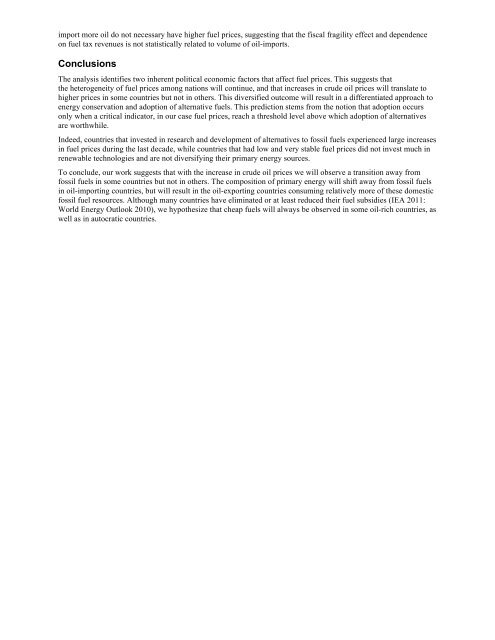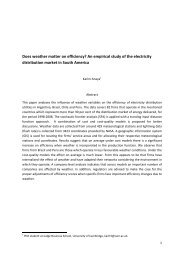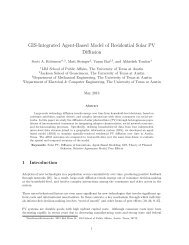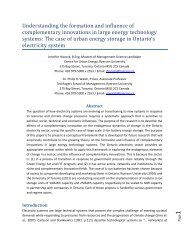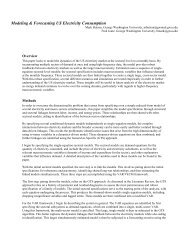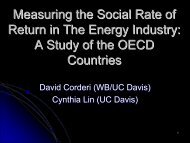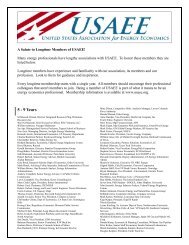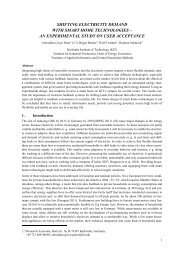explaining differences in fuel prices among countries - United States ...
explaining differences in fuel prices among countries - United States ...
explaining differences in fuel prices among countries - United States ...
Create successful ePaper yourself
Turn your PDF publications into a flip-book with our unique Google optimized e-Paper software.
import more oil do not necessary have higher <strong>fuel</strong> <strong>prices</strong>, suggest<strong>in</strong>g that the fiscal fragility effect and dependenceon <strong>fuel</strong> tax revenues is not statistically related to volume of oil-imports.ConclusionsThe analysis identifies two <strong>in</strong>herent political economic factors that affect <strong>fuel</strong> <strong>prices</strong>. This suggests thatthe heterogeneity of <strong>fuel</strong> <strong>prices</strong> <strong>among</strong> nations will cont<strong>in</strong>ue, and that <strong>in</strong>creases <strong>in</strong> crude oil <strong>prices</strong> will translate tohigher <strong>prices</strong> <strong>in</strong> some <strong>countries</strong> but not <strong>in</strong> others. This diversified outcome will result <strong>in</strong> a differentiated approach toenergy conservation and adoption of alternative <strong>fuel</strong>s. This prediction stems from the notion that adoption occursonly when a critical <strong>in</strong>dicator, <strong>in</strong> our case <strong>fuel</strong> <strong>prices</strong>, reach a threshold level above which adoption of alternativesare worthwhile.Indeed, <strong>countries</strong> that <strong>in</strong>vested <strong>in</strong> research and development of alternatives to fossil <strong>fuel</strong>s experienced large <strong>in</strong>creases<strong>in</strong> <strong>fuel</strong> <strong>prices</strong> dur<strong>in</strong>g the last decade, while <strong>countries</strong> that had low and very stable <strong>fuel</strong> <strong>prices</strong> did not <strong>in</strong>vest much <strong>in</strong>renewable technologies and are not diversify<strong>in</strong>g their primary energy sources.To conclude, our work suggests that with the <strong>in</strong>crease <strong>in</strong> crude oil <strong>prices</strong> we will observe a transition away fromfossil <strong>fuel</strong>s <strong>in</strong> some <strong>countries</strong> but not <strong>in</strong> others. The composition of primary energy will shift away from fossil <strong>fuel</strong>s<strong>in</strong> oil-import<strong>in</strong>g <strong>countries</strong>, but will result <strong>in</strong> the oil-export<strong>in</strong>g <strong>countries</strong> consum<strong>in</strong>g relatively more of these domesticfossil <strong>fuel</strong> resources. Although many <strong>countries</strong> have elim<strong>in</strong>ated or at least reduced their <strong>fuel</strong> subsidies (IEA 2011:World Energy Outlook 2010), we hypothesize that cheap <strong>fuel</strong>s will always be observed <strong>in</strong> some oil-rich <strong>countries</strong>, aswell as <strong>in</strong> autocratic <strong>countries</strong>.


